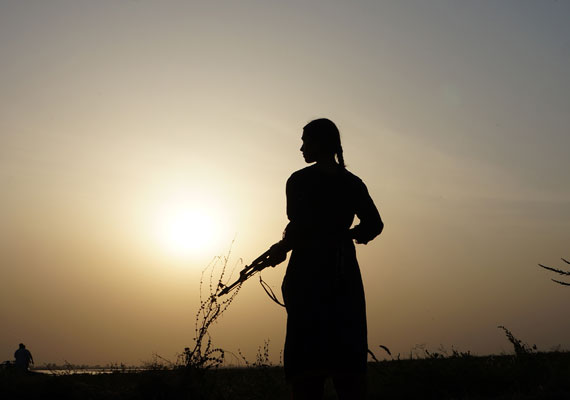News Desk |
Writer-producer Sarmad Masud’s biopic movie on Nazo Dharejo is contending for Oscars 2018, from the UK under the category of ‘Best foreign language movie’.
With limited budgets and difficult shooting, Sarmad Masud has tried to depict the most tabooed topic of “women empowerment” in this movie.
The movie disseminates a powerful message of dismissing a woman as weak and vulnerable against the hardened patriarchal system which more severely outlines the gender segregation typically practiced in the interior Sindh and rural areas of Pakistan.
This movie which is purely female-centric, narrates the life-risking struggles of Nazo Dharejo, a woman belonging to the village of Qazi Ahmed, Nawabshah in Sindh’s rural area.
The woman after her father was jailed, stridently fought with her sisters against a powerful group of 200 bandits who happened to be his uncles and relatives from the extended family to prevent them from seizing their rightfully owned acres of fertile agricultural land.
Read more: YouTube sensation Zaid Ali introduces his wife…
The movie disseminates a powerful message of dismissing a woman as weak and vulnerable against the hardened patriarchal system which more severely outlines the gender segregation typically practiced in the interior Sindh and rural areas of Pakistan.
The film hence depicts not only Nazo’s physical struggle against 200 bandits but also shows her resolve to resign from the psychological subjugation of being weak and perhaps powerless that is woven in the structures of the society.
Now 41, the local legend has been termed as the toughest woman by Pakistan’s Press and her villagers.
The writer-producer wanted to make a film in Pakistan on Police brutality but he accidentally came through the story of survival of this woman in 2013 and soon through the help of the journalist who covered her story, traced Dharjo and made his first brief formal contact with Nazo Dharejo.
The movie was released on 15th September in the UK and stars Suhaee Abro, Eman Malik, Syed Tanveer-Hussain, Razia Malik, Atif Akhtar Bhatti, Tayyab Afzal and Ahsen Murad.
Talking about the challenges he encountered to shoot the film, the director started talking about the lack of funds he had initially, which were mainly covered by the funds collected from friends and family.
The writer-producer wanted to make a film in Pakistan on Police brutality but he accidentally came through the story of survival of this woman in 2013 and soon with the help of the journalist who covered her story, traced Dharjo and made his first brief formal contact with her.
Read more: Proud Moment for Pakistan: Gilgit-Baltistan praised internationally…
After few question, Dharejo quickly signed her life- right but refused acceptance of money for that, since she wanted Masud to tell her story to the world.
While the producers view the story of Dharejo as universal, he aims to work on more such movies out of his innate passion and love for Pakistan that he believe will lead to the rejection of misconceptions associated with it.














